Baking is one the most scientific parts of the cooking world. Not enough baking powder will result in a flat sponge. Too much flour? Your cookies will be like bricks. It’s important to understand your ingredients when it comes to baking. The baking aisle in the supermarket can be quite daunting, especially with so many different varieties of flour.
The primary difference in types of flour is the protein content. Each flour has a different percentage of protein, which will determine what the flour is best used for. More protein means more gluten, and more gluten means more strength – this will affect the texture and structure of the bake. I’m here to break down the different types of flour and give you some of their most common uses.
Plain flour:
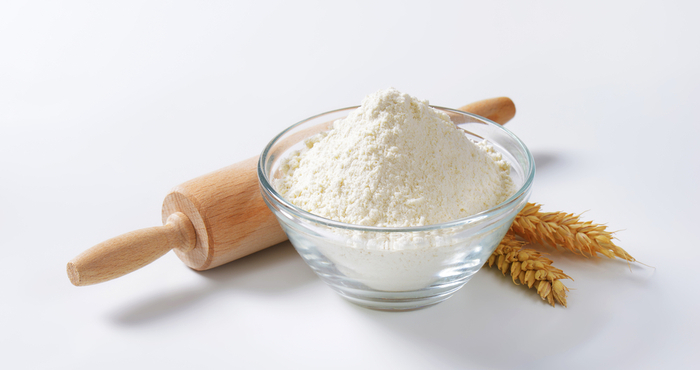
Also known as all-purpose flour, cake flour, cream flour, this flour is low in gluten and protein. This is perfect for making biscuits and pastry – where a crumbly texture is needed, this is the one! Plain flour is also used for pancakes, crumbles, shortcrust pastry etc.
Self-raising flour:
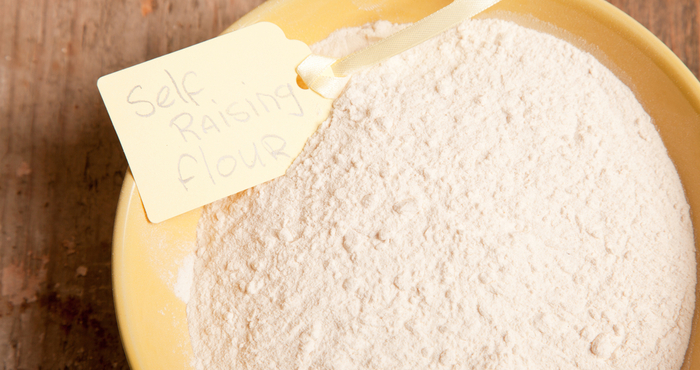
Self-raising flour has a little extra lift, as it contains added raising agents to give a nice rise to baked goods. Recipes that use self-raising flour usually don’t require any additional raising agents. You can make your own self-raising flour by simply adding two teaspoons of baking powder to every 100g of plain flour. This flour is best used for sponges, scones and some types of biscuit.
Strong flour:
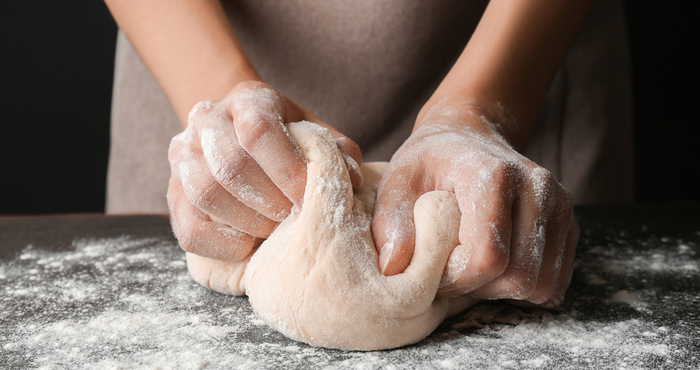
Strong flour is also commonly known as bread flour, and contains more gluten than the other types of flour. The gluten in the flour gives dough elasticity and allows it to rise with a good structure. Strong flour is best used for yeasted bakes and enriched doughs.
Wholemeal flour:
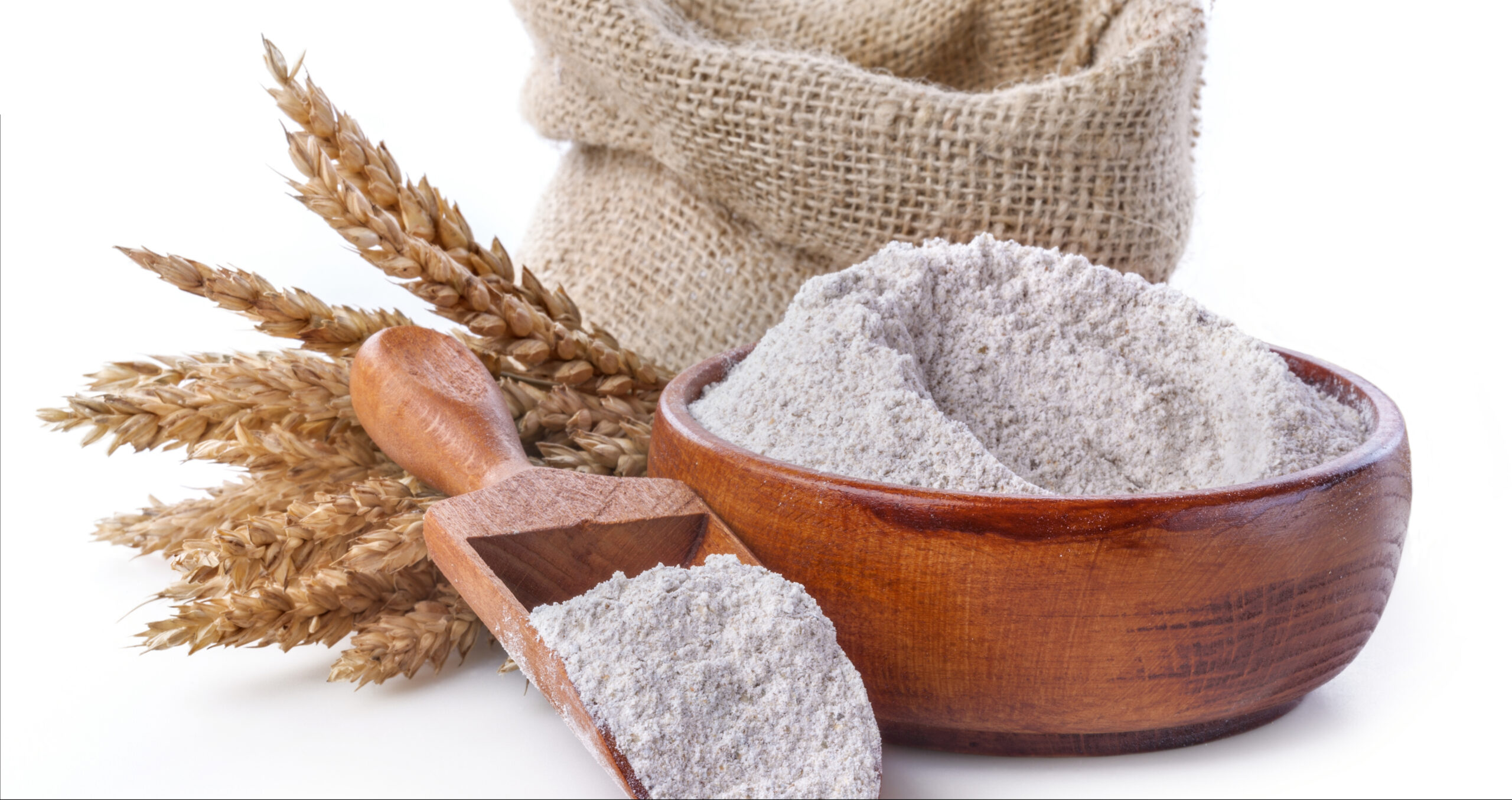
Wholemeal or whole-wheat flour is made from milling the ‘whole wheat’, meaning that it contains all three parts of the wheat. It is full of natural nutrients, high in fibre and nuttier in flavour. This flour is great for making brown breads, wholemeal scones etc.
Rye Flour:
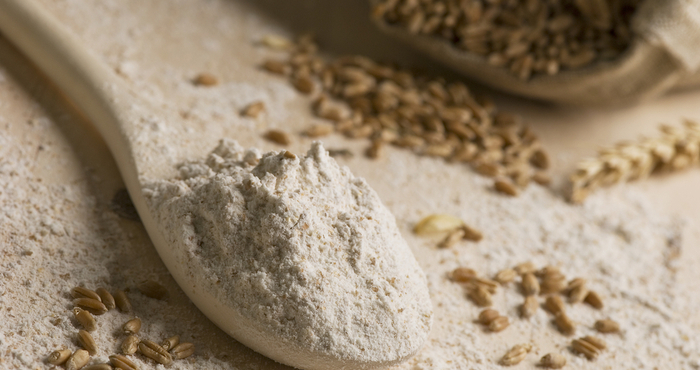
Rye flour is milled from rye berries, or the grains from rye grass. It has a distinct flavour that is slightly sour in taste, and an interesting texture. It is quite dark in colour and is much coarser. It is commonly used in sourdough breads.
Gluten free flour:
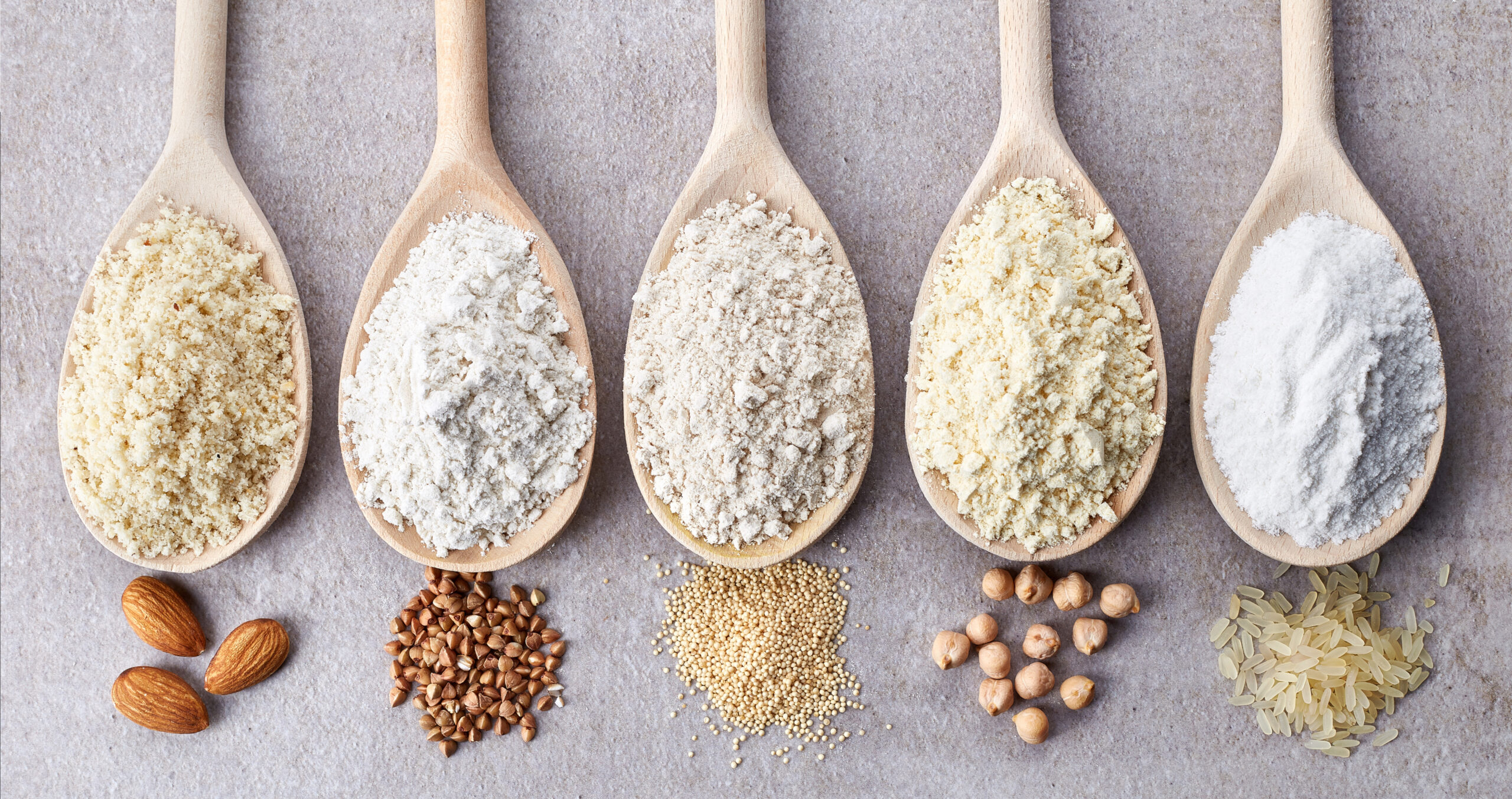
There is a huge range of gluten-free flours available today. Most flours now have a gluten-free alternative. Here are some of the naturally gluten-free flour alternatives out there:
- Rice flour
- Buckwheat
- Soya flour
- Quinoa
- Polenta
- Almond flour
- Teff
- Potato starch
- Chickpea flour
- Millet
- Maize
- Tapioca starch
- Lentil flour
When creating a recipe that’s made with regular flour, it is often a simple like-for-like substitution; for example, you can swap plain flour for gluten-free plain flour in a 1:1 ratio.
Oat flour:
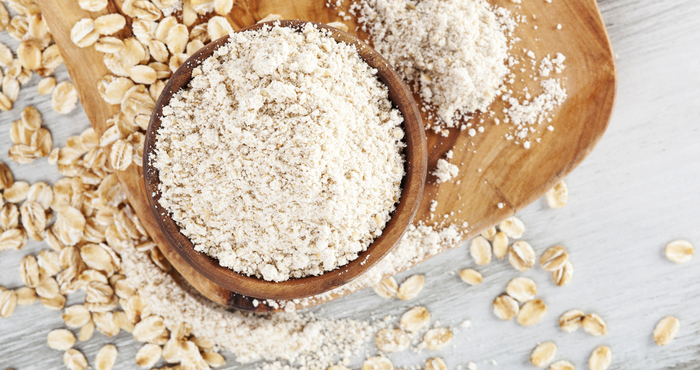
Oat flour is made from ground porridge oats. It is rich in nutrients and very easy to make at home: simply place porridge oats in a blender or food processor and whizz into a fine powder. Oat flour works well in dense bakes such as breakfast cookies, bread, banana pancakes, muffins etc. You can create gluten-free oat flour by whizzing up gluten-free porridge oats – just double-check that the oats are labelled as gluten-free if you’re baking for anyone with coeliac disease, as cross-contamination can be an issue.
Coconut flour:
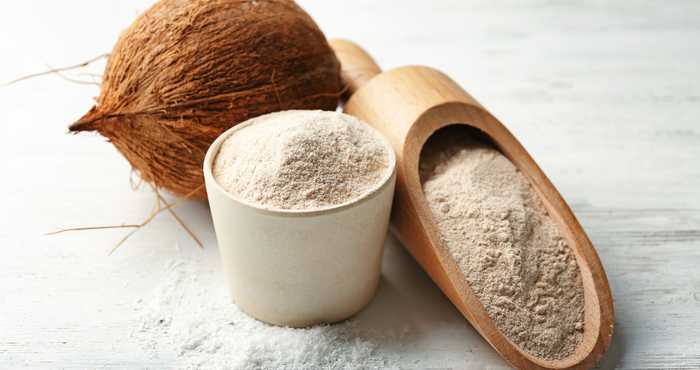
Coconut flour is a great gluten-free alternative that’s high in protein and fibre. It is made from dried coconut meal, ground to a soft, fine flour that’s great for baking. It is great for making cookies, cakes, banana breads, muffins etc.
There are so many flours on the market today that it’s easy to be overwhelmed with choice, but I hope this makes things a little more clear.
- summer events
- small business
- gut health
- OATLY
- healthy
- Crudo
- top tips
- All Together Now
- fridge cake
- Events Waterford
- me auld flower
- Events Ireland
- food festival
- news
- dublin
- events Dublin
- dublin festival
- Home-Cooking
- food and drink festival
- online cooking course
- festival line-up
- cooking
- Summer festival
- eco-friendly
- Events
- cosy
- Festivals Ireland
- wine
- Body & Soul
- grapes
- music festival
- south africa
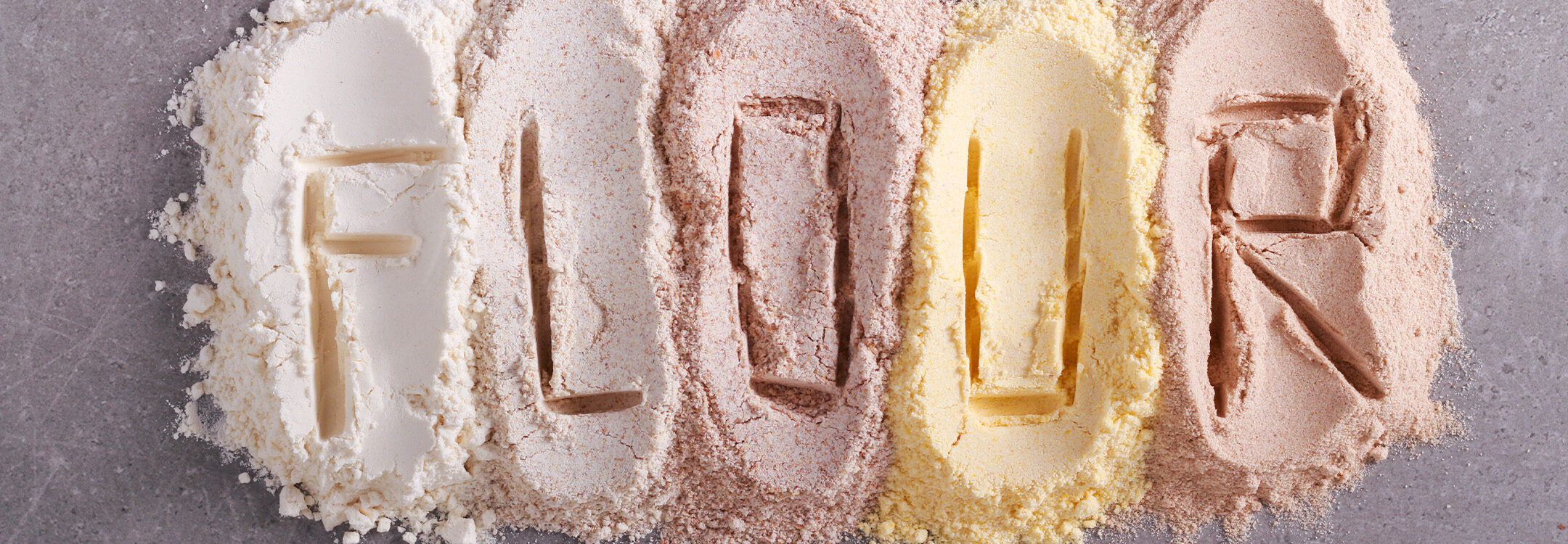
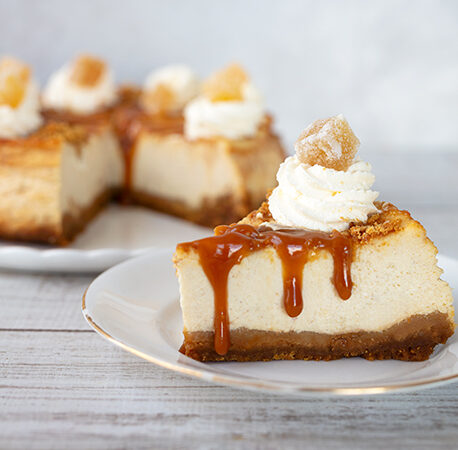
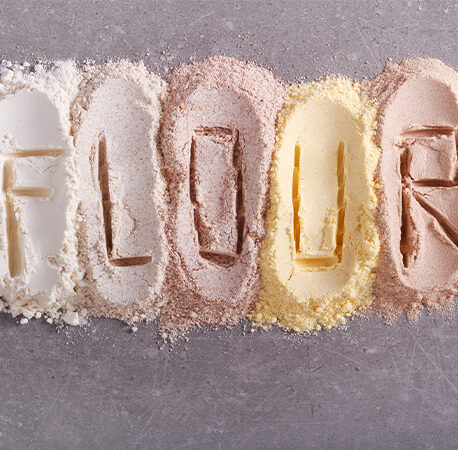
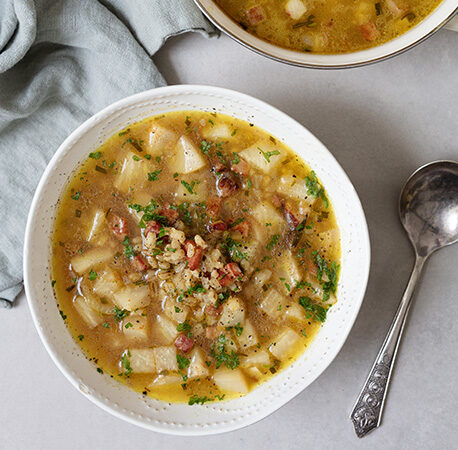
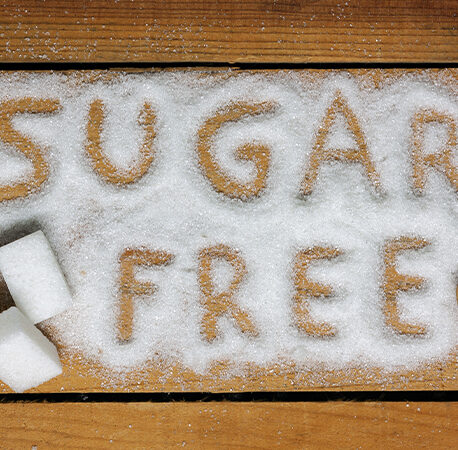
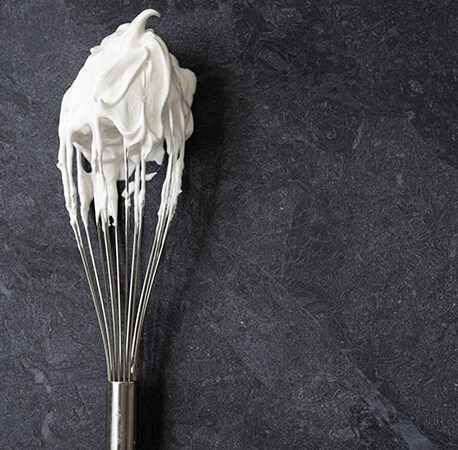
You have to be signed in to comment this post.